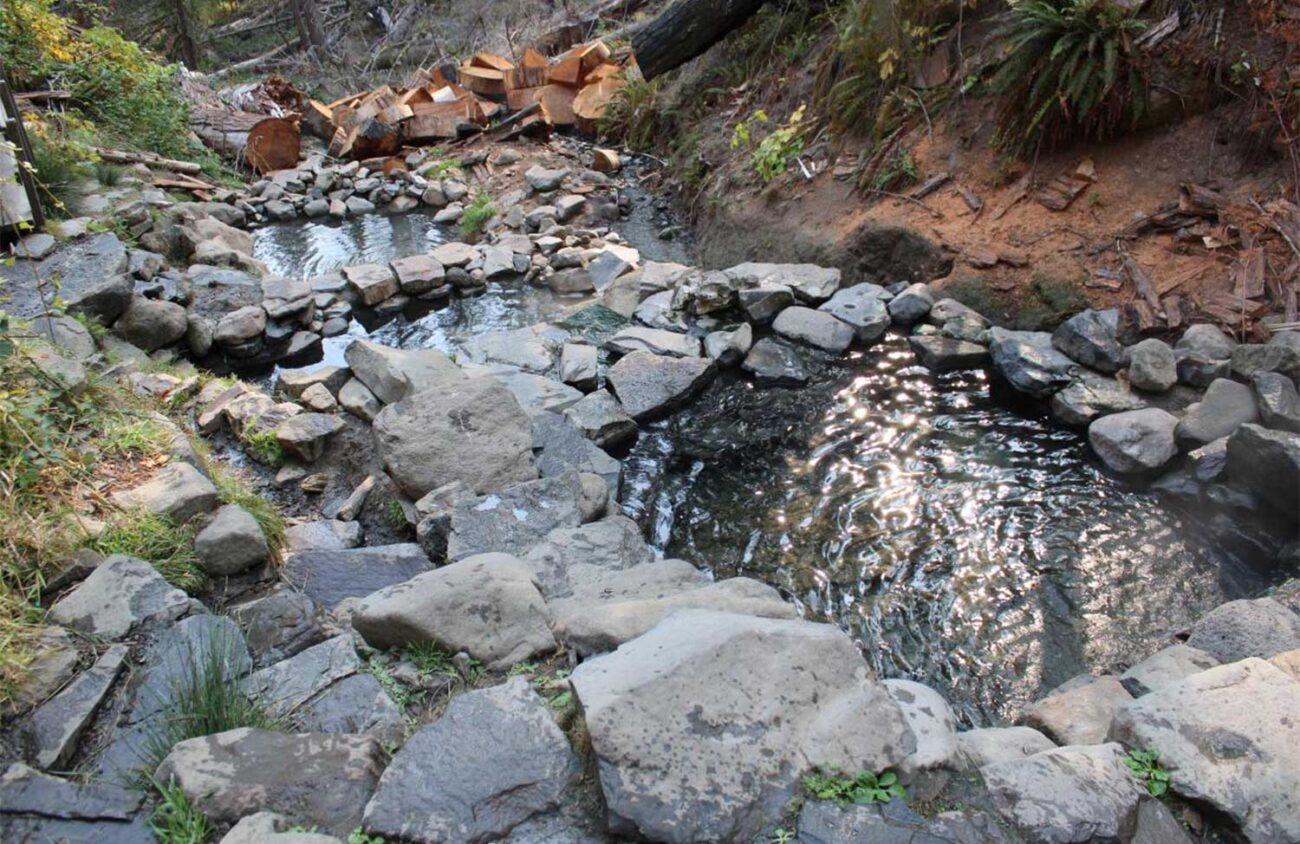“I want to get into a hot tub filled with warm water,” Satoshi Furukawa, Japanese surgeon and astronaut, said in an interview right after his return from the International Space Station in 2011.
I can agree with him now. I moved to Oregon from Japan about five years ago, and one of the things I miss from Japan, besides people I love and delicious food, is hot springs. I love every moment of it — the initial shock of the heat to the gradual relaxation in the warm water — it can’t be expressed in words, but so so good.
Most homes in Japan have a hot tub by the shower, so you can take a hot bath daily if you like. But the special ones are when you go on a trip. Hotels usually have public baths with large hot tubs for the guests to rest up from the day of traveling or start the morning with a nice hot bath.
Yes, it is public, and no, people do not wear clothes. You go to a changing room and take your clothes off.
I’ve never questioned this because this is what I grew up with until coming to the U.S., and my friends told me about their experience at hot springs as “unique,” or sometimes “weird.”
Is it weird to go into hot springs unclothed?
I’ve talked with Yuki Kameoka, the managing director of the All Japan Ryokan and Onsen Association. He says foreign tourists tend to face two main barriers to getting into public hot springs or baths. First is “feeling shy or resistant” to being unclothed with strangers because they have never experienced that before. However, Kameoka says that once a foreigner experiences hot springs, the resistance often goes away. “You just gotta experience it,” he says.
The second barrier is having tattoos. Traditionally, tattoos are prohibited in hot springs and even many swimming pools in Japan. Kameoka says tattoos are traditionally not well-accepted by the public in Japan. You are asked to hide the tattoos, or you can not enter, which means, in hot springs, you are most likely unable to get in.
Kameoka says, although older generations are still strongly against tattoos in public places, there are some hot springs where people can wear yuami, a towel-like cloth to wear in hot springs to cover the body. He says the culture of hot springs is getting more inclusive.
Recently, I visited the Terwilliger Hot Springs near Cougar Reservoir. We got there around 11 am on Saturday, parked at a spot, and walked over to the U.S. Forest Rangers stand to pay $12 for entering the hot springs. The ranger warned us about the “clothing optional” policy, and his warning weirdly made me a little uncomfortable.
We walked on a trail for about 10 or 15 minutes until we heard people’s voices. I nervously looked around, and felt glad that everyone there at the time had a swimsuit on. After the visit, a ranger informed me that there tend to be people unclothed in the evenings when it gets darker.
Three pools with hot water and one lukewarm pool lined up in the middle of the forest. The view was amazing — the bright green trees and clear blue sky. Although a sunny day in summer might not have been the wisest choice for dipping yourself in warm water.
Still, about 15 people were enjoying the hot springs with family, friends, or some came by themselves. I had conversations with a couple of people there at the hot springs, which felt natural and calm. I’ve experienced these things in Japan as well.
“Without any clothes and the way you were born, it’s an experience and a relationship deepens,” Kameoka says. He loves the hot springs culture in Japan. He is also the director of Onsen Culture to be a UNESCO Intangible Cultural Heritage.
Many countryside and towns in Japan rely on tourism, and places with hot springs are deeply impacted by the pandemic. He says the number of onsen motels declined over the years.
By being recognized by UNESCO, he wants to bring hope to the people in tourist spots with onsen. “I want them to know that it is something they should be proud of,” he says.
Terwilliger Hot Springs is open from sunrise to sundown and closed Thursdays from 8 am to noon for cleaning. Visit Willamette National Forest.Terwilliger (Cougar) Hot Springs for more information. Learn more about Japanese Onsen culture at Japan Onsen (Hot Spring) Association.
A Note From the Publisher

Dear Readers,
The last two years have been some of the hardest in Eugene Weekly’s 43 years. There were moments when keeping the paper alive felt uncertain. And yet, here we are — still publishing, still investigating, still showing up every week.
That’s because of you!
Not just because of financial support (though that matters enormously), but because of the emails, notes, conversations, encouragement and ideas you shared along the way. You reminded us why this paper exists and who it’s for.
Listening to readers has always been at the heart of Eugene Weekly. This year, that meant launching our popular weekly Activist Alert column, after many of you told us there was no single, reliable place to find information about rallies, meetings and ways to get involved. You asked. We responded.
We’ve also continued to deepen the coverage that sets Eugene Weekly apart, including our in-depth reporting on local real estate development through Bricks & Mortar — digging into what’s being built, who’s behind it and how those decisions shape our community.
And, of course, we’ve continued to bring you the stories and features many of you depend on: investigations and local government reporting, arts and culture coverage, sudoku and crossword puzzles, Savage Love, and our extensive community events calendar. We feature award-winning stories by University of Oregon student reporters getting real world journalism experience. All free. In print and online.
None of this happens by accident. It happens because readers step up and say: this matters.
As we head into a new year, please consider supporting Eugene Weekly if you’re able. Every dollar helps keep us digging, questioning, celebrating — and yes, occasionally annoying exactly the right people. We consider that a public service.
Thank you for standing with us!

Publisher
Eugene Weekly
P.S. If you’d like to talk about supporting EW, I’d love to hear from you!
jody@eugeneweekly.com
(541) 484-0519
